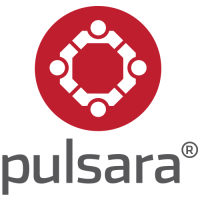The following is paid content sponsored by Pulsara
By Drew Rinella for EMS1 BrandFocus
Ethics are a major consideration in other allied health professions, but the topic rarely receives much attention in EMS. Here are ten concepts you need to know to be an ethical prehospital health care provider:
1. Autonomy
Also known as self-determination, autonomy refers to the right of the patient to make decisions about their own medical care[1]. In EMS we often encounter this ethical concept when well-meaning family members attempt to supersede the wishes of a patient who is otherwise competent and capable of making their own choices. Aside from situations where an inability to make appropriate decisions has been demonstrated (e.g. threat of suicide), a patient who is alert, oriented, and able to comprehend the gravity of their situation has the right to determine the course of their own medical care.
2. Informed Consent
A patient exercising autonomy can only make appropriate decisions regarding their medical care if they possess enough information to make informed choices[2]. It is therefore the ethical obligation of EMS providers to present a full and accurate picture to our patients of the risks and benefits of their self-determined health care decisions.
3. Confidentiality
Information received while engaged in a patient-provider relationship must remain guarded from those without a need-to-know. Consequences for the inappropriate or negligent disclosure of private medical information include embarrassment to the patient; the erosion of trust between EMS providers and the public we serve; and hefty fines to the agency. In the case of HIPAA (Health Insurance Portability & Accountability Act) violations, fines can be as high as $50,000 per infraction, with a maximum penalty of $1.5 million per year[3].
4. Beneficence
The term beneficence describes actions which are carried out for the benefit of others. Administering D50 to a hypoglycemic patient while on scene, instead of immediately transporting them to the hospital while unconscious, is an example of beneficence in EMS. In this situation, providing IV dextrose with the knowledge that the patient could very likely return to consciousness and be left safely in their home is beneficial in terms of lower cost to the patient, and less of their time wasted waiting for an unnecessary ER evaluation.
5. Nonmaleficence
Primum non nocere - first, do no harm - is the original guiding principle of medicine. If faced with a choice between doing nothing or taking an action which will cause more harm, the correct decision in most cases is to take no action. Similarly, if inaction would likely result in harm befalling a patient, EMS providers are obligated to take appropriate steps for the protection of those in our care.
6. Justice
As it pertains to healthcare, justice refers to the level of fairness by which medical services are distributed. In EMS, medical care is provided on an emergency basis equally to all persons in need regardless of race, sex, religion, or socioeconomic status. Systems of triage also observe the ethical principle of justice when determining each patient’s priority for care depending on the urgency of their needs.
7. Respect for persons
To simply tend to an emergency medical need is not enough; patients must be afforded basic human dignity and respect. In our often dark and gloomy profession, it is easy to fall into the trap of viewing our patients as cargo to be transported. This is a natural psychological self-defense reaction which EMS providers must guard against in order to maintain ethical health care practices.
8. Honesty
EMS providers must be truthful in all dealings. Lying can at best destroy any trust built between EMS and the public, and at worst result in legal ramifications to the provider and the agency. Honesty must be exercised in our documentation, and in our direct communication with our patients and other health care providers.
9. Integrity
An EMT or paramedic with integrity adheres to ethical principles despite any pressures or temptations to do otherwise[4]. The provider must be always stalwart in the face of challenges to their ethics, and make only decisions which they know to be good and true.
10. Advocacy
One of the best ways we can care for our patients is to be their advocate. Advocating for a patient may simply entail making phone calls to coordinate assistance for them, or contacting their primary care physician to help clarify any confusion the patient may have about their doctor’s instructions. In some situations, the patient may be unable to advocate for themselves at all, such as in cases of child or elder abuse, and it becomes the legal and ethical responsibility of the EMS provider to advocate for the patient’s safety and wellbeing.
References
1.Retrieved from: https://www.bma.org.uk/advice/employment/ethics/medical-students-ethics-toolkit/2-autonomy-or-self-determination>
2.“Opinion 8.08 - Informed Consent.” American Medical Association, June 2006. Web. 20 June 2016. Retrieved from:
http://www.ama-assn.org/ama/pub/physician-resources/medical-ethics/code-medical-ethics/opinion808.page?
3.Brown, Morgan. What is the penalty for a HIPAA violation?” True Vault, 9 Jan. 2014. Web. 20 June 2016. Retrieved from:
https://www.truevault.com/blog/what-is-the-penalty-for-a-hipaa-violation.html
4. Retrieved from: http://www.issuesinmedicalethics.org/index.php/ijme/article/view/2131/4594
About the Author:
Drew Rinella is the clinical coordinator for Bonner County EMS in rural North Idaho. He is a paramedic, public servant, and competition shooter. Drew is an advocate for quality in EMS and also blogs his crusade against bad EKGs in product advertising.



